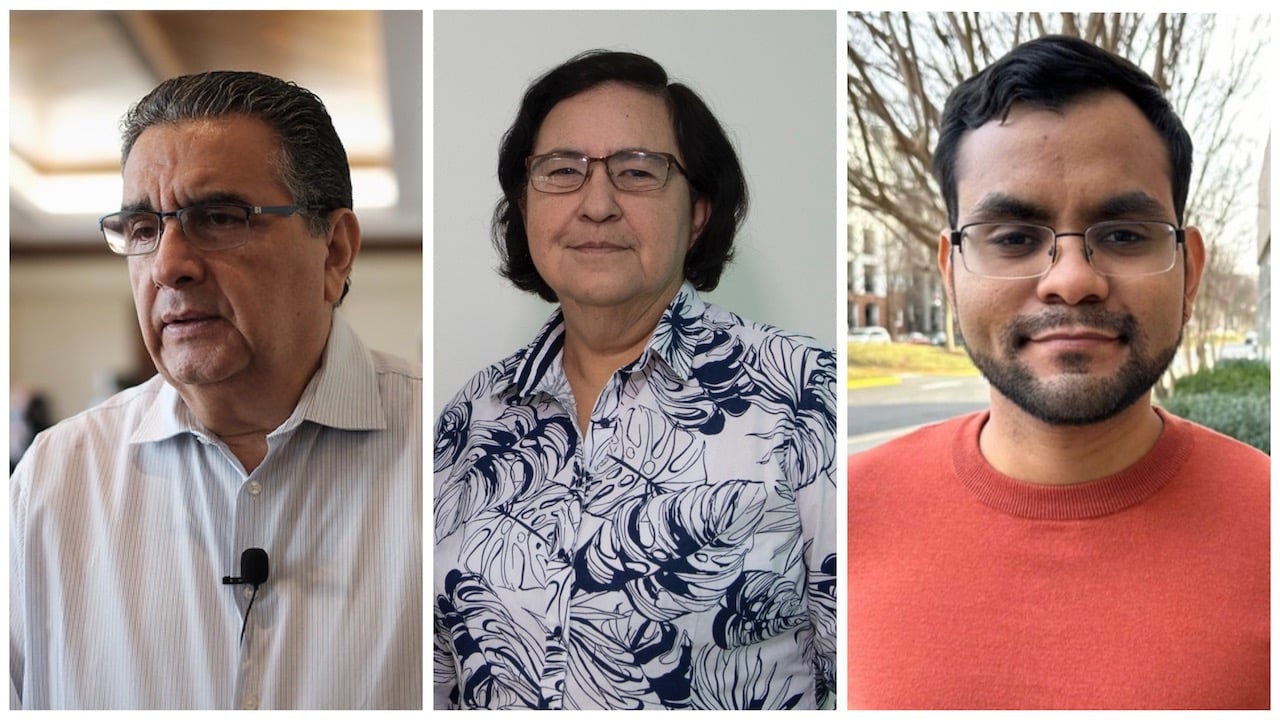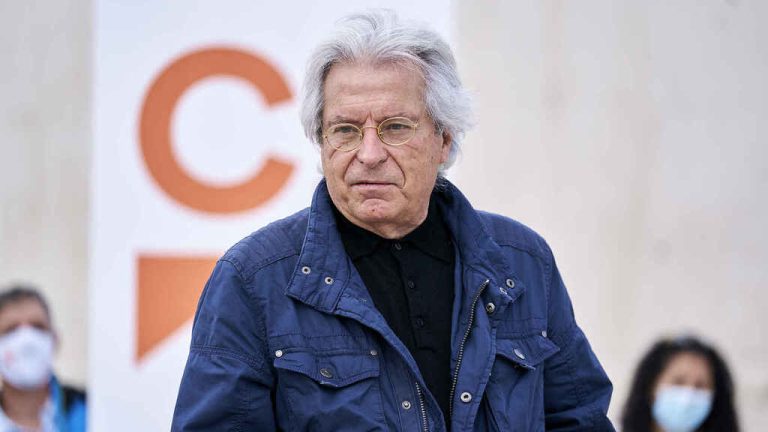6 de agosto 2021

Dialogue and Elections: “The Peaceful Way Out of the Dictatorship”

PUBLICIDAD 1M
PUBLICIDAD 4D
PUBLICIDAD 5D
There is no need for candidates, ballot boxes, or voters, but rather minimum conditions for the realization of democratic elections, assures the MEP

The European Parliament and the European Union “will not recognize” the results of the fraudulent elections of Daniel Ortega’s regime
The European Parliament and the European Union “will not recognize” the results of the fraudulent elections of Daniel Ortega’s regime, which keeps seven aspiring presidential candidates of the opposition in prison, assures Spanish MEP Javier Nart.
And even if there is a sector of the opposition that participates in the electoral process controlled by the FSLN, it does not mean that the conditions “are admissible”, there is no need for an opposition candidate, but for “conditions”, says the MEP in an interview with Esta Noche, transmitted through social networks because of television censorship in Nicaragua.
In January 2019, Nart visited Nicaragua together with a delegation of the European Union, which found that the country did not suffer an alleged “coup attempt” as the official version assures, but rather the annulment of civil rights and freedoms. During that visit, the MEPs suggested that Ortega hold democratic elections.
In the face of the dictatorship’s refusal, the European Union has since sanctioned 14 high-ranking officials of the regime, accused of being responsible for serious human rights violations, the latest on the list: Vice President and First Lady Rosario Murillo, the presidential couple’s son, Juan Carlos Ortega, Supreme Court President Alba Luz Ramos, presidential economic affairs advisor Bayardo Arce, National Assembly President Gustavo Porras, Attorney General Ana Julia Guido, and Commissioners General Fidel Dominguez and Juan Antonio Valle.
The pressure measures that the European Parliament and the European Union will continue to apply to the Ortega regime “do not have a deadline”, and the suspension of Nicaragua from the Association Agreement between Europe and Central America is a measure that can be activated at any time, the MEP assures.
The European Union sanctioned eight high ranking officials of Daniel Ortega’s regime this Monday. What is the objective of these sanctions?
It is to encourage, help and support a democratic process in Nicaragua. The European Union does not have the slightest interest, never has, in intervening politically in any place if it is not to defend something fundamental, which is democracy, which we enjoy in Europe, and we simply want for any place in the world. Simply this: freedom and democracy, words that are subversive in some places.
What other measures could the Council of the European Union and its high representative, Joseph Borrell, take to put more pressure on Daniel Ortega's regime?
Nicaragua is within a broad agreement, which is the agreement with Central America, from Panama to Guatemala; and this also means the possibility of suspending the agreement. And why? For a simple reason, because the agreement itself establishes that the fundamental framework of any European Union agreement is respect for minimum democratic standards. For example, such an agreement could never be established with North Korea, nor with any other country with a dictatorial and anti-democratic regime. It does exist with Nicaragua, as it does with Costa Rica, with Panama, as long as Costa Rica, Panama, Nicaragua, Salvador, Honduras, respect these elementary principles.
Does the European Union have a political deadline, a deadline to activate the clause of the Association Agreement?
No, it can be activated at any time. But what we sincerely desire is a solution to the Nicaraguan crisis. Through what process? Through the ballot box, through the popular vote determining what it wants.
In the meeting we had with the President and the Vice President (in 2019), all the political groups of the European Parliament told him the same thing, freedom and democracy; and that in that democratic process the Nicaraguan people determine what they want their representatives and consequently, their Government to be. Nothing more and nothing less than that, democracy.
Are there any efforts between the European Union, the U.S. Government and the OAS to exert more pressure on the Ortega regime?
This is the responsibility of the vice-president in charge of Foreign Affairs, Joseph Borrell, and obviously of the resolutions of the European Parliament, among others, of the delegation for Central America, of which I am the first vice-president.
We have asked for a visit to Nicaragua, to have contact with all the authorities, from the president, to the attorney general, to everybody; but it seems that they are extraordinarily busy and they say that they cannot carry out the meeting with us.
Would these votes give legitimacy to Daniel Ortega's reelection?
Not at all. For a democratic process to take place, there is no need for ballot boxes, nor a good queue of voters, nor the last act of casting the ballot, but there is a need for basic conditions. The basic conditions are: free press, candidates who can act freely; financing that is controlled, access to the public media by all candidates, a truly independent Electoral Commission.
(In short,) something that is basic, and is what is demanded in the elections in Spain, in Belgium, in Germany, in Denmark, in Hungary, or in Greece, minimum conditions, which at the moment are certainly not given, which is why, first there was a resolution in October 2019; and now there has been a list of people who have their assets frozen and their presence in the European Union prohibited.
Would the fact that a sector of the opposition is participating, in this case the Citizens for Liberty party, give any kind of legitimacy to Ortega's reelection?
With the greatest respect to this candidacy, I can remind you that during Franco's regime there was a party called the Proverist Party. Man! Well, nobody paid any attention to it.
The fact that there is an opposition candidate does not mean that the conditions are admissible; what is needed is not simply a candidate, what is needed are the conditions that I have expressed before; and if someone understands that he can run under those conditions, I assure you that the European Parliament and the European Union are not in favor of the line that with a candidate running, the elections are blessed.
You were commenting on your visit to Nicaragua in January 2019. What is your view of President Ortega and his intentions to perpetuate himself in power in Nicaragua now?
Some members of the delegation left with hope because the meeting we had with the president and with the vice president was a very frank, very open, a very clear meeting. Out of respect for the conversation we had I am not going to express what the specific contents were. I came out saying that the same thing that was happening was going to happen, or even worse. I had a pessimistic realism, and I told them, I wish with all my heart to be wrong, and that the Government of Nicaragua understands that the solution for the country is freedom and democracy.
If Ortega is officially reelected in January 2022, will the European Parliament, the European Union, recognize the results of those fraudulent elections?
I can tell you no, absolutely not. Those are elections without conditions, unrecognized elections, with all the consequences that this carries with it.
And what are the consequences?
Neither the results are recognized nor the consequences of the results are recognized. Another thing is that this Government thinks that to resist is to win. I prefer to convince, and in order to convince, what is needed is the capacity to open spaces for freedom. And freedom is something very simple, it is the capacity to disagree with power without ending up in jail.
What will be the political and economic consequences for Nicaragua after the European Union does not recognize these results, nor the government that emerged from these fraudulent elections?
All countries in the world need a situation of free access, both to international financing and to international investments. When a country is unreliable because it is an unreliable regime, there is a withdrawal or a lack of arrival of funds.
Consequently, the conditions of a very open economy, which exist in Central America, would not apply to Nicaragua, even for private investors. We are talking about the fact that democracy is not simply a formal apparatus, but it is a structure of stability, and that stability is conducive to economic growth and development.
A situation in which there is an authoritarian regime fosters an extractive oligarchy that enriches itself at the expense of the people, speaking, of course, in favor of the people. In other words, it is something like the enlightened despotism of the 17th and 18th century, which is everything for the people, but without the people; in this case, not even for the people, everything for me.
Does the European Union intend to be a bridge for dialogue to find a peaceful solution to the national crisis?
Of course dialogue is the solution, but dialogue for dialogue's sake can be eternal, the conversation can sail in parallel and get nowhere. The problem is not so much a situation of dialogue, but the implementation of standards that are perfectly defined.
I was born in Francoism, I lived in Francoism, there were also elections, and there were ballot boxes, and there were queues, and people smiled on television; but of course, the candidates were predetermined, there were no freedoms of any kind, no press, no Electoral Commission, absolutely nothing. So, all totalitarian regimes have elections, but their people always win because there are no conditions for freedom.
This article was originally published in Spanish in Confidencial and translated by our staff
Archivado como:
PUBLICIDAD 3M
Periodista y productor general de los programas Esta Semana, Esta Noche y Confidencial Radio, dirigidos por Carlos F. Chamorro. Exiliado en Costa Rica desde junio de 2021.
PUBLICIDAD 3D